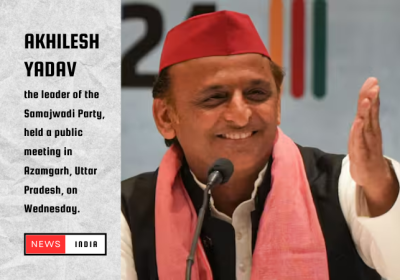Muslim Reservation: Why has politics heated up around Muslim reservations amid elections, and what does the Constitution say? Let's delve into the matter.
- By --
- Friday, 24 May, 2024
Lok Sabha Election 2024 What Constitution Says For Muslim Reservation Controversy in Government Job And Education Muslim Reservation: Politics has heated up around Muslim reservation amidst the Lok Sabha elections. The Kolkata High Court has cancelled the reservation given to Muslims under the OBC quota in West Bengal. The BJP has made it a major issue, while Chief Minister Mamata Banerjee has stated that she will approach the Supreme Court against this decision. Meanwhile, in Uttar Pradesh, there is deliberation on reviewing the reservation granted to Muslim communities within the OBC quota.
However, questions arise about whether there is any connection between this entire issue and the upcoming sixth and seventh phases of elections. Is the politics of the 80-20 vote bank resurfacing? The significant point is how the Muslim community in Uttar Pradesh views all these developments. Let's try to understand the answers to all these questions and what our constitution says about Muslim reservations.
What does the Constitution say about Muslim reservations?
The Indian Constitution emphasizes equality, hence reservation based on religious grounds is not provided to Muslims in the country. Article 341 of the Constitution and the 1950 Presidential Order interpret reservation on religious grounds. Under the reservation granted based on caste in the country, only Hindus are included in the Scheduled Caste category. However, later in 1956, Sikhs, and in 1990, Buddhists, were also included in this category. However, Muslims and Christians do not get reservations under this category.
How do Muslims get reservations?
In reality, many Muslim communities are granted reservations under the OBC list at both the central and state levels. According to Article 16(4) of the Constitution, the state is empowered to provide reservations for backward classes of citizens. Similarly, Article 15(1) prohibits discrimination against citizens on grounds of religion and caste. Article 16(1) provides equality of opportunity, and Article 15(4) allows the state to make provisions for the advancement of backward classes socially and educationally.
It is noteworthy that the Muslim communities included in the OBC quota do not receive this benefit simply because they were Muslim, but because they were socially, educationally, and economically backward. The state reviewed these communities and granted them reservations. However, now the mention of the review has raised eyebrows among voters.
What is the reservation system in government jobs and educational institutions?
In the country, Scheduled Castes are given 15% reservation in government jobs and educational institutions. Scheduled Tribes get 7.5%, and the OBC category gets 27% of reservation. Later, a separate reservation of 10% was provided for economically backward classes. There are a total of 12 states/UTs where Muslims are granted reservation under the central list of the OBC category. However, since states have the authority to review the OBC, in some states, the 27% limit has been exceeded.
For example, in Karnataka, Muslims have a 4% sub-quota within the 32% OBC quota. In Kerala, within the 30% OBC quota, there is a 12% Muslim quota. In Tamil Nadu, backward-class Muslims receive 3.5% reservation. In Uttar Pradesh, reservation for Muslims is provided within the 27% OBC quota.
Why is politics being played over Muslim reservations?
Actually, after the statements given by BJP leaders regarding Muslim reservations, there is discussion about whether this system will be reviewed. The minds of Muslims in Uttar Pradesh are also swirling with talks of reviewing reservations. One question is why the discussion on reviewing Muslim reservations is happening now in Uttar Pradesh. One answer is that the sixth and seventh phases include elections in Bihar, Uttar Pradesh, and West Bengal. Among these, there are 60 seats, and 16 of them have a 20% Muslim population, meaning Muslims can influence victory or defeat. Perhaps that's why leaders are focusing more on issues like reservation, the constitution, Hindu-Muslim matters, etc., to send a clear message to their respective vote banks.
10% reservation was recommended for Muslims
When it comes to Muslim reservations, there have been several mentions of the Sachar Committee and the Ranganath Mishra Committee reports. They have stated that the Muslim community is also backwards, while the Ranganath Mishra Committee recommended a 15% reservation for minorities, including 10% for Muslims. However, the truth is that reports are made, and later they are utilized for political purposes. This time also, it seems to be evident in the elections.






